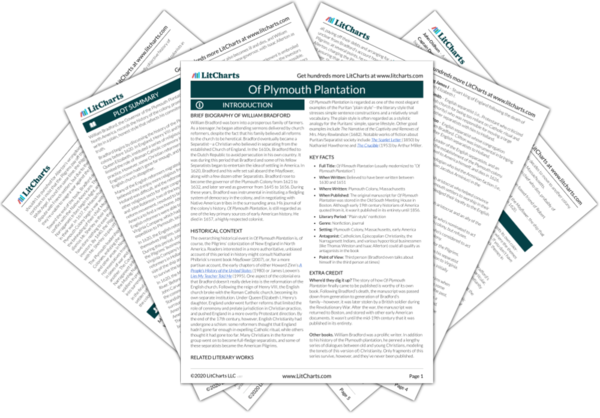This is a turning point in the history of Plymouth: Bradford finds that families become more responsible and hard-working when they begin working for themselves, rather than toiling on a collective piece of farmland, for which the rewards are harder to see. Bradford’s insight here is that what’s best for the individual is also best for the group, in the sense that individual profit will benefit the entire colony and help the Pilgrims pay off their debt. This idea is also a cornerstone of modern capitalism, suggesting that the Pilgrims’ organization was influential in the history of the American economy. (Note also Bradford’s casual assumption that women are inherently lazier or more deceitful than men.)


